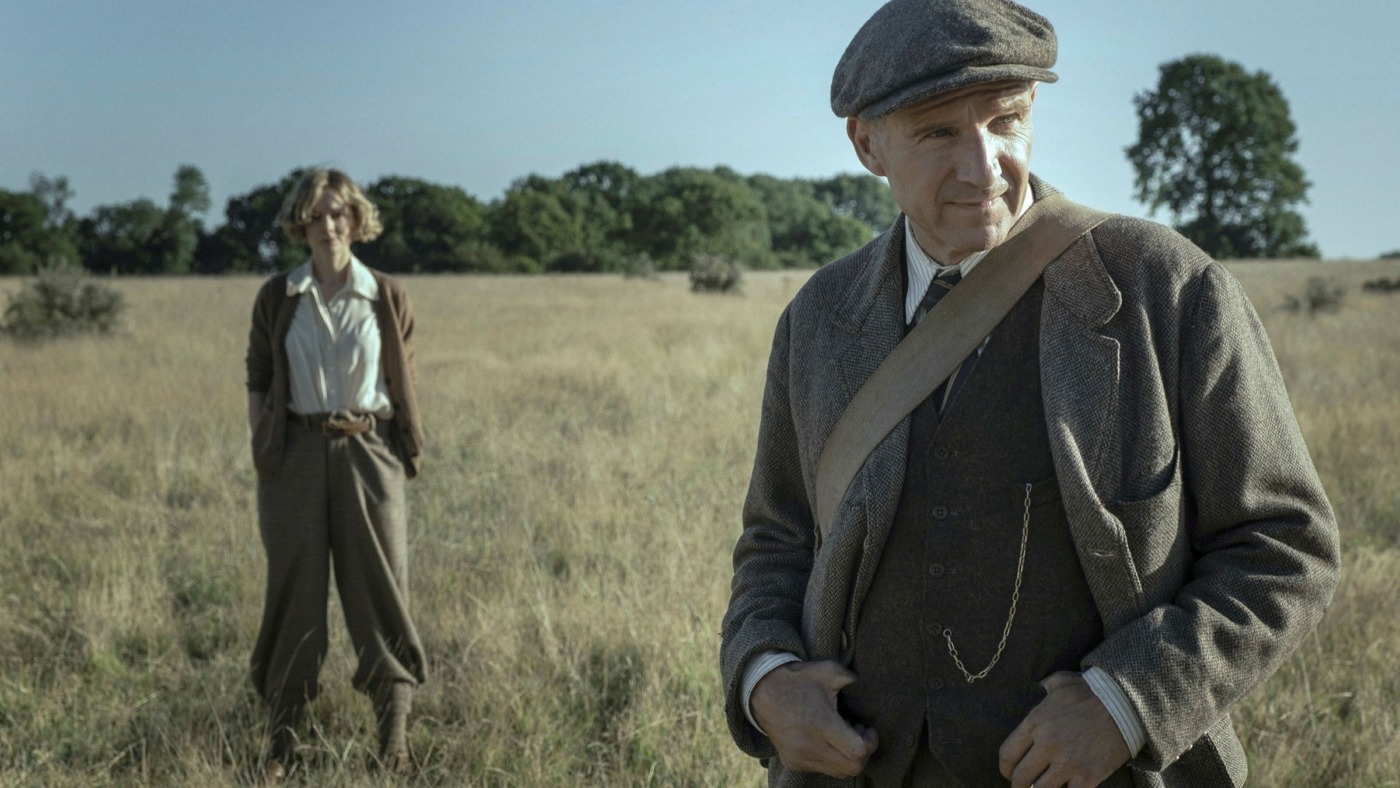‘The Dig’: an excavation of passion and mortality in times of uncertainty
The Dig tells the true story of wealthy widow Edith Pretty (Carey Mulligan), and her hiring of local expert Basil Brown (Ralph Fiennes) for the famous Sutton Hoo excavation that transformed our understanding of the Dark Ages. Set just weeks before World War II, Moira Buffini’s intelligent screenplay uses this unstable moment in history as a platform to explore the two remarkable people at its heart. Carefully weaved into these truthful events are fictional elements that elegantly build upon the themes of mortality, remembrance and passion set out by the central story. What results is a staggeringly beautiful reflection of the fleeting nature of time when the future seems its bleakest.
The tale of Edith and Basil is that of kindred spirits who are able to overcome their repressed sorrow and social positions in pursuit of their passions. Both Mulligan and Fiennes’ performances are exceptional throughout, finding their weight in subtlety and the words left unspoken between them. In particular, Fiennes’ reserved and yet powerful display of Basil’s deep love of learning is a touching tribute to a man that was never properly rewarded for his achievements. I should also mention Archie Barnes’ captivating performance as Edith’s young son whose unwavering hope for the future provides an uplifting contrast to Britain’s growing unease.
The Dig is a reminder that our most important lasting effect is the impact we have on those around us
Buffini’s script is particularly poetic in its ability to intertwine reflections on the past, present and future into one coherent discussion. Broadly speaking, it explores our place in this thread through our preservation in photography and archeology. On a more intimate level, The Dig is a reminder that our most important lasting effect is the impact we have on those around us. The key message being that although our time is limited, we should never let fear stand in the way of pursuing the things that make us smile.
In truth, the film never reaches a clear climax or happily ever after for its characters. Instead, it finds its height in a series of moving conversations that draw the story to a close with a feeling of acceptance rather than resolution. Although this may seem like a bleak ending, the combination of Simon Stone’s sky-dominated cinematography with the wonder of buried history left me feeling just as uplifted as sad. Given that The Dig explores how we choose to use our time in spite of its inevitable end, this choice is an all the more potent decision.
Mulligan’s performance is so steeped in years of heartache that you can readily believe she’s closer to Edith’s age than her own
Despite its positive reviews, The Dig has received criticism surrounding its historical inaccuracy. In particular, Carey Mulligan’s casting as a woman who was twenty years her senior has been met with calls of ageism and claims that it shifts the dynamic between Edith and Basil. While there is certainly a discussion to be had about ageism in Hollywood, Mulligan’s performance is so steeped in years of heartache that you can readily believe she’s closer to Edith’s age than her own. Furthermore, as this central relationship is based in a shared understanding of passion and loss rather than romance, their age is not crucial to the deep bond that forms between them.
The other area in which the film diverges from the truth is in archeologist Peggy Piggott’s (Lily James) story. Her presentation as clumsy and unpracticed is a far cry from the years of experience Piggott had gained by the Second World War and seems unjustified in the context of the plot. In contrast, the addition of Peggy’s romance with the fictional Rory Lomax (Johnny Flynn) feels perfectly placed. Not only does it echo Edith’s own tragic marriage to her husband but ties together multiple themes in Rory’s representation of the millions of men sent to war with uncertain fates.
Owing to these historical inaccuracies and my general unease at awarding anything full marks, I originally decided on a rating of four stars. However, the more I considered the depths of its performances and the complexity of Buffini’s writing, the more I found this to be an injustice to how much The Dig had genuinely moved me. I would truly recommend this film to anybody as its not only a remarkable story that we should all be aware of, but an almost perfectly executed exploration of themes that are relevant to us all.

Comments